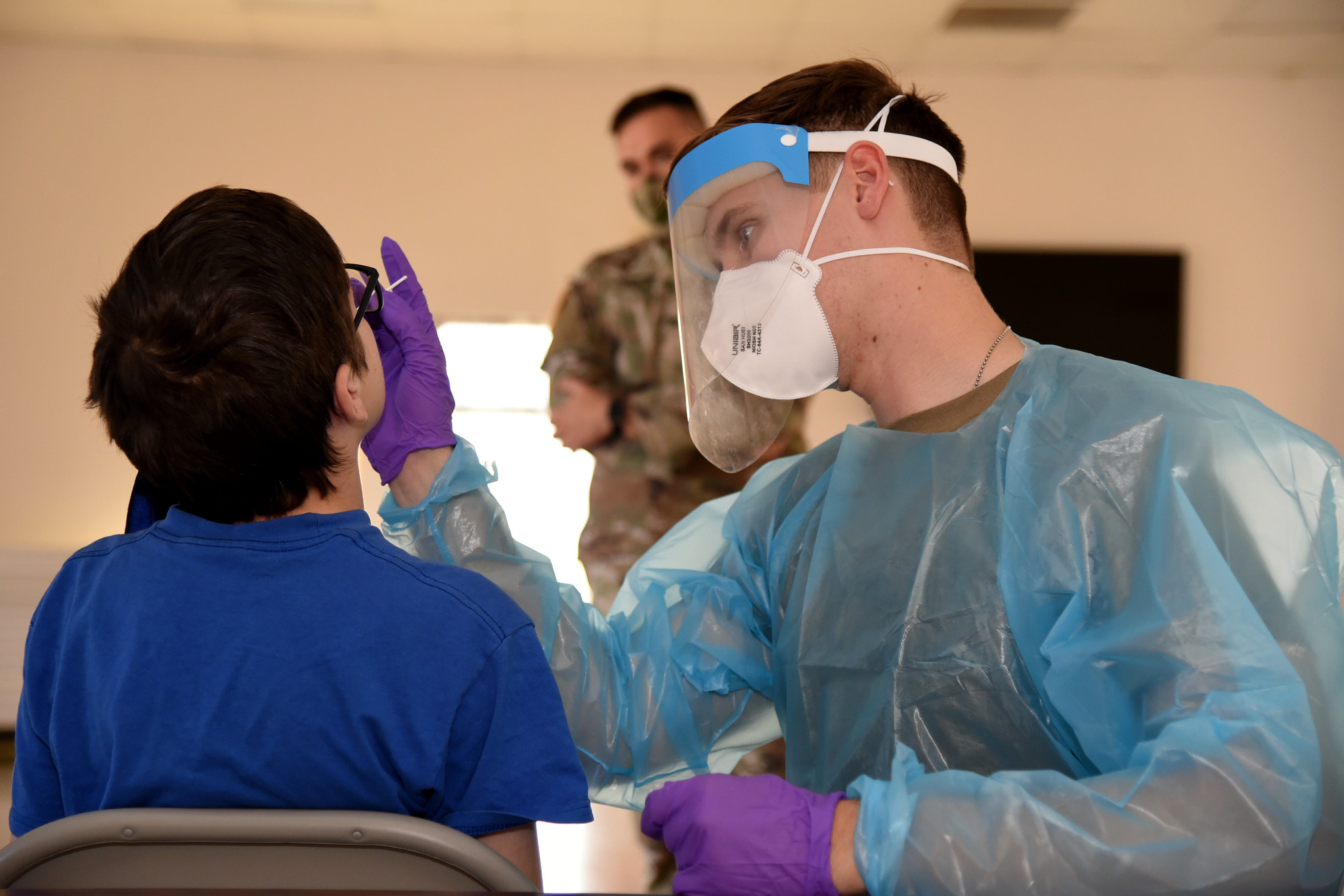

Follow all of PopSci’s COVID-19 coverage here, including the latest on vaccine development, advice for flu season, and a tutorial on tips on how to de-fog your glasses.
The Food and Drug Administration (FDA) gave emergency use authorization on Tuesday to the first rapid COVID-19 test that can be completed entirely at home. The nasal swab test takes 30 minutes from start to finish. People age 14 and older can perform it on themselves, but they do need a prescription to order it.
“I was expecting at-home approved tests, honestly, a month ago,” says Omai Garner, a clinical microbiologist and specialist in diagnostic devices at the University of California, Los Angeles Health System. Garner is hopeful that the new All-In-One Test Kit from Lucira Health will expand testing efforts, but with one caveat: It should only be used on people with symptoms.
Most COVID-19 diagnostic tests use polymerase chain reaction (PCR) to replicate RNA from the coronavirus until there’s enough genetic material to be detected. The approved at-home test uses a similar system called loop-mediated amplification reaction (LAMP) that also copies genetic material from the virus but isn’t as sensitive as PCR. “If the amount of virus is low enough, a person could be positive by PCR, but negative by this particular assay,” Garner says. In short, it’s not as effective as the tests that many clinics and pop-up centers are offering to the public.
The approximately $50 All-In-One Test Kit uses a swab that doesn’t go as far up the nasal cavity like some PCR tests. The user swirls the swab in a vial of chemicals that sits atop a sleek base, snaps the lid shut, and waits 30 minutes. When the time is up, the base of the device lights up to give a positive or negative diagnosis.
The process may seem simple, but Garner has concerns. “It’s hard to imagine all the different kinds of ways this test protocol can be messed up, but all of them will happen,” he says. For example, users may not swab their nose correctly or stir it in the vial for the required 15 seconds.
The test itself is highly accurate, the company reports. The LAMP detected the virus in 94 percent of people who got a positive PCR diagnosis, and didn’t find the virus in 98 percent of those with a negative PCR diagnosis. However, these results were obtained with a health care provider conducting the test, so the accuracy will likely go down when used at home. It was also only tested in people with symptoms, so its effectiveness in detecting asymptomatic infections is unknown.
Lucira Health’s product has been in development for five years; the company originally built it as an at-home diagnostic kit for the flu, but it pivoted to COVID-19 when the pandemic struck. And although the test is marketed for the general public, it may prove more useful to health care providers across the country who need to rapidly test patients. The FDA’s guidelines state that medical experts who prescribe the test have to report the results to public health authorities to help track the spread of COVID-19.
Garner didn’t expect the first completely at-home COVID-19 test in the US to use LAMP. Instead, he thought it would be a third kind of test, called an antigen test, which detects special proteins in the virus. This method is common for other types of at-home diagnostics, such as pregnancy tests.
The FDA is considering other at-home COVID-19 tests for approval, but there’s no guarantee how soon they’ll be available. “Does this first one being approved now make it easier for other ones to be approved? Potentially,” Garner says. “I think we’ll have to see.”
